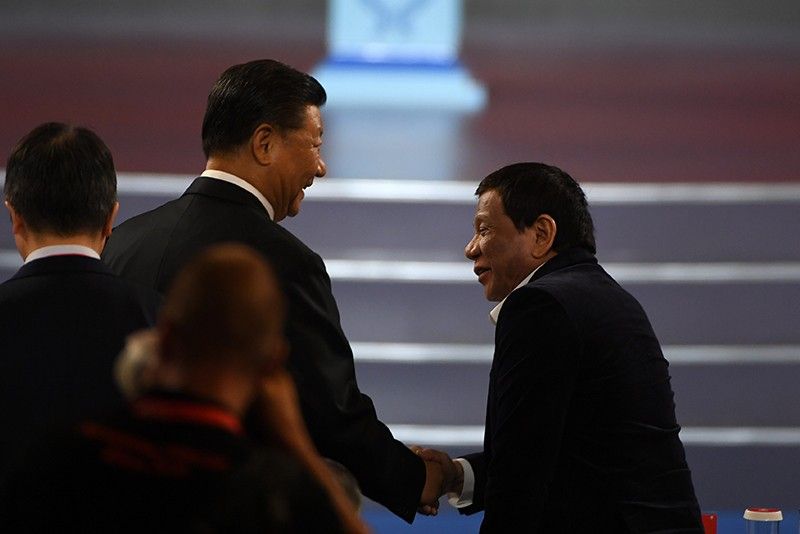‘Accepting China’s rejection of arbitral award a betrayal of public trust’

MANILA, Philippines — It would be a betrayal of public trust should the Duterte administration accept China’s rejection of the landmark ruling that invalidated its sweeping claim over the South China Sea, parts of which is the West Philippine Sea, former Foreign Affairs Secretary Albert Del Rosario said Saturday.
China claims most of the contested sea, including waters close to Philippine shores, and has rejected a UN-backed international tribunal ruling that said its assertion to the Sea is without legal basis.
Beijing told visiting President Rodrigo Duterte that its position on the South China Sea was not up for negotiation, Malacañang said, adding there is no need for the Philippine leader to bring up Manila’s legal victory again in future meetings with his Chinese counterpart because “they will continue with the peaceful dialogue.”
“For the Philippines to have been asked to agree that it will not bring up the issue again is to effectively accept that China is above the rule of law,” Del Rosario said.
“This would be so wrong. It would be a betrayal of the trust we have placed in our governance,” he added.
Duterte is under growing pressure at home to challenge China — after largely setting aside the standoff for years — with tensions high after a Chinese fishing trawler hit and sank a Filipino boat in June in the contested waters.
The decision to raise the issue marks a turnaround for Duterte, who had revived once-icy diplomatic ties with Beijing after being elected in 2016 when he set aside the maritime ruling in favour of wooing Chinese aid, trade and investment.
According to a statement from China's foreign ministry, Chinese President Xi Jinping said the two countries should "put aside disputes, eliminate external interference" over the South China Sea, and "make greater strides in the joint development of offshore oil and gas" in the region.
Parts of the South China Sea are also claimed by Taiwan, Brunei, Malaysia and Vietnam.
China invokes the so-called "nine-dash line" to mark its historic rights to the territory, which is based on a vague map that emerged in the 1940s.
Despite the territorial issues, Manila and Beijing signed a series of agreements over joint cooperation in fields including education, and Duterte hailed the "friendship and the value of our ties" between the two countries. — with AFP
- Latest
- Trending






























